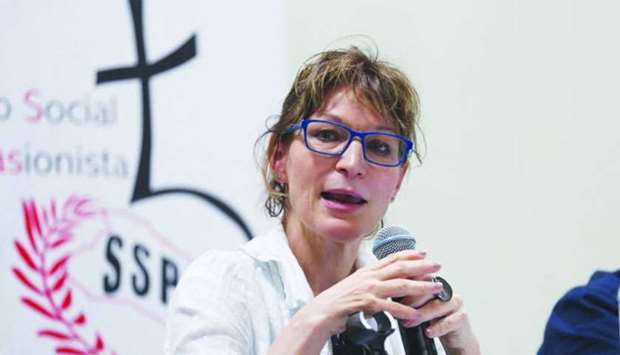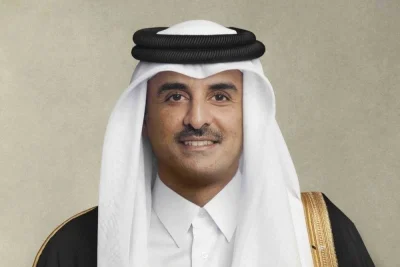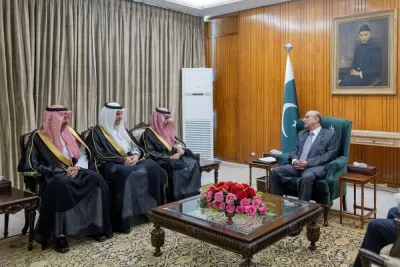* First criticism of Saudi Arabia at UN Human Rights Council
* Condemns Khashoggi murder, urges co-operation with probe
Three dozen countries, including all 28 EU members, called on Saudi Arabia on Thursday to release 10 activists and co-operate with a UN-led investigation into the murder of journalist Jamal Khashoggi at its Istanbul consulate.
It was the first rebuke of the kingdom at the UN Human Rights Council since it was set up in 2006 and came amid growing international concern about Saudi violations of basic freedoms such as freedom of expression.
"It is a success for Europe to be united on this," an envoy of an EU country told Reuters.
The unprecedented joint statement, also backed by Canada and Australia but not the United States, was read out by Harald Aspelund, Iceland's ambassador to the United Nations in Geneva.
A statement read by Iceland on behalf of a group of states expressed "significant concerns" about reported abuses in Saudi Arabia and demanded justice following Khashoggi's killing.
It called on Saudi authorities "to disclose all information available" about its own investigation while co-operating with separate UN inquiries into Khashoggi's death.
"Investigations into the killing must be prompt, effective and thorough, independent and impartial, and transparent.
Those responsible must be held to account," added the statement.
Reading the text, Aspelund said: "We are particularly concerned about the use of the counter-terrorism law and other national security provisions against individuals peacefully exercising their rights and freedoms."
Activists can and should play "a vital role in the process of reform which the Kingdom is pursuing", it said.
The joint statement called for the release of Loujain al-Hathloul, Eman al-Nafjan, Aziza al-Yousef, Nassima al-Sadah, Samar Badawi, Nouf Abdelaziz, Hatoon al-Fassi, Mohamed al-Bajadi, Amal al-Harbi and Shadan al-Anezi.
Activists allege that jailed women activists, including those who campaigned for the right to drive, have been subjected to electric shocks, flogging, sexual assault and other forms of torture.
The EU and other sponsoring countries said they "condemn in the strongest possible terms" the killing of Khashoggi, noting that Saudi Arabia has confirmed it took place at its Istanbul consulate on October
2.
On Jamal Khashoggi's murder, the text said: "The circumstances of Mr Khashoggi's death reaffirm the need to protect journalists and to uphold the right to freedom of expression around the world.".
"Investigations into the killing must be independent, impartial and transparent," it added, specifically calling for co-operation with an inquiry led by Agnes Callamard, the UN special rapporteur on extrajudicial executions.
"It's an important step in ensuring accountability. The international community has a collective responsibility to highlight human rights violations in a country that until now had managed to escape that kind of scrutiny," Callamard told Reuters.
She added that she welcomed the call for co-operation with her investigation as the Saudis had to date not responded to her requests for meetings.
Turkey is yet to share its police and forensic reports on the Khashoggi case, which authorities had pledged to do during her mission there last month, she added.
Callamard is conducting an inquiry into the killing. But Callamard is an independent human rights expert who does not speak for the UN and calls have mounted for Secretary-General Antonio Guterres to push for a full UN-backed probe.
Khashoggi, a Washington Post contributor and critic of Crown Prince Mohamed bin Salman, was murdered at the Saudi consulate in Istanbul on October 2.
Saudi Arabia initially said it had no knowledge of his fate.
It has since blamed rogue agents for Khashoggi's death and the kingdom's public prosecutor has charged 11 people over his murder.
Meanwhile, Human Rights Watch said the statement issued on Thursday was "the first-ever collective action" at the council on rights in Saudi Arabia, which had evaded criticism at the UN body.
HRW's Geneva director John Fisher called it "a landmark step toward justice" and urged "more scrutiny" of the country.
On Wednesday, UN human rights chief Michelle Bachelet called on Saudi Arabia to release women activists allegedly tortured in detention after authorities accused them of harming the country's interests.
Responding to the statement, Saudi Arabia's ambassador to the UN in Geneva condemned the use of "joint statements for political causes."
"Interference in domestic affairs under the guise of defending human rights is in fact an attack on our sovereignty," ambassador Abdulaziz Alwasil said.
Last week the Saudi deputy public prosecutor told Saudi-owned newspaper Alsharq Alawsat that his office had looked into media reports that the women were tortured and found no evidence, calling the reports "false".



